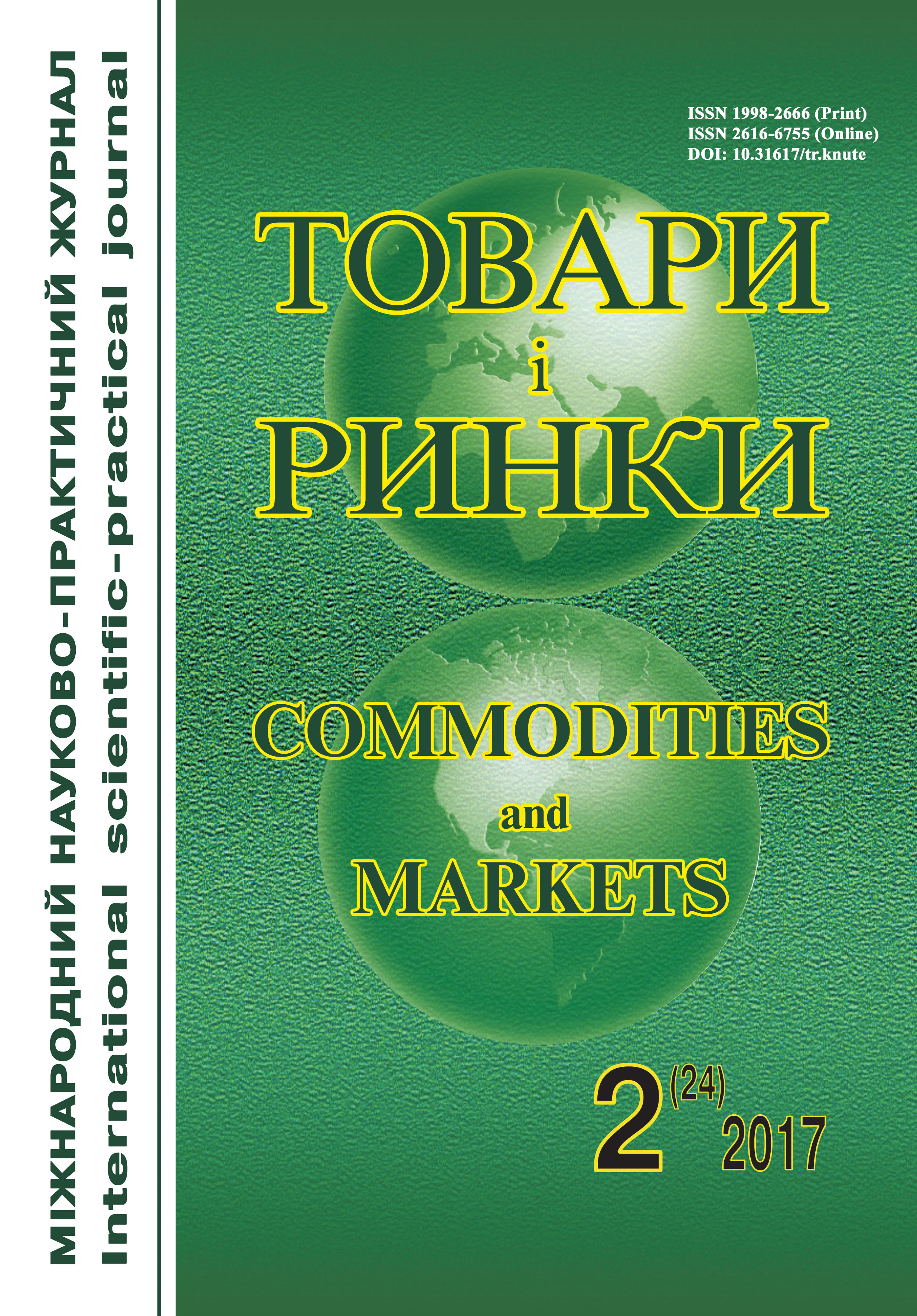Resource oriented management model of production enterprise’s marketing
Keywords:
marketing, inertia, change management, marketing management, strategic changes, innovative development, resource oriented modelAbstract
Background. For modern domestic industrial enterprises (especially large ones) change of strategy and structural form, and also bringing their administrative systems in accordance with certain standards is a very difficult, risky process (that requires a lot of time and resources). Thus, inertia, but not plasticity is a norm for them. At the same time domestic industry lack material resources for implementation of wide scale changes that embrace all spheres of activity of enterprise. In this case "natural" inertia of changes as fear of increase of the charges not provided with the real resources of enterprise can compel the management to be concentrated on local measures, that touch the key moments of productive process that promotes the risk of decline of general competitive advantages.
The aim of the article is an estimation of directions and ways of providing the most effective transition from phase-to-phase transformations and development of the program of adaptation of modern industrial enterprises to the crisis terms of management by quality combination of resource-oriented aspects of management changes at the construction of marketing management system.
Material and methods. The dialectical method of scientific cognition and range of scientific and special methods of research, associated and consistently applied in accordance with general logic of analysis, were used: theoretical generalization, analysis and synthesis; system analysis (to research modification of strategies of innovative development of countries of world economy in the conditions of globalization), methods of economic modelling.
Results. The estimation of directions and ways of adaptation of large domestic industrial enterprises to the crisis terms of management using psychological aspects of management changes was conducted. The psychological portrait of typical domestic enterprise, whose activity is based on the inertia phenomena (that take place on different hierarchical levels), was formed. It was identified during the research, that the perception of aims and tasks of changes is most distorted at the level of eventual performers (workers on workplaces), feed-back at management changes is absent at the level of middle link of management, and the unclearness of motivation of cardinal changes is characteristic for top management of an enterprise. It was proven that domestic industrial enterprises in the modern crisis terms of development of national economy have big difficulties of adaptation to the market requirements and resistance to the inertia phenomena (both on national and on international levels). That is why for them change of strategy and structural form, and bringing their administrative systems in accordance with the certain European standards is a very difficult, risky process, that requires a lot of time and resources.
Conclusion. The mechanism of gradual transition of organization of economic activity of modern industrial enterprise from the mass production of goods to individualization of product at the market was offered. A marketing activity model was worked out by their best combination in this system as a flexible mechanism, that allows to control realization of marketing functions on any stage of development of events and implementation of the marketing program that assists overcoming the inertia phenomena on all four levels.
References
Faэj L., Rэndell R. Kurs MVA po strategycheskomu menedzhmentu ; per. s angl. M. : Al'pyna Pablysher, 2012. 618 s.
Knorryng V. Y. Teoryja, praktyka y yskusstvo upravlenyja : ucheb. dlja vuzov po specyal'nosty "Menedzhment". 3-e yzd., yzm. y dop. M. : Yzd-vo NORMA (Yzd. gruppa NORMA–YNFRA • M), 2011. 528 s.
Kunde J. Korporatyvnaja relygyja. Sozdanye syl'noj kompanyy s jarkoj yndyvydual'nost'ju y dushoj ; per. s angl. M. Ershovoj. 4-e yzd., yspr. SPb. : Stokgol'mskaja shkola эkonomyky, 2014. 270 s.
Porter M. E. Competitive Strategies: Techniques for Analyzing Industries and Competitors. New York : Free Press, 1980. 788 p.
Kotler P., Fahey L., Jatusripitak S. The New Competition. New York : Prentice-Hall, 1985. 466 p.
Davis S. M. Future Perfect. Reading : Addison-Wesley Publishing, 1987. 588 p.
Argyris C. Overcoming Organizational Defenses: Facilitating Organizational Learning. Needham : Allyn & Bacon, 1990. 288 p.



